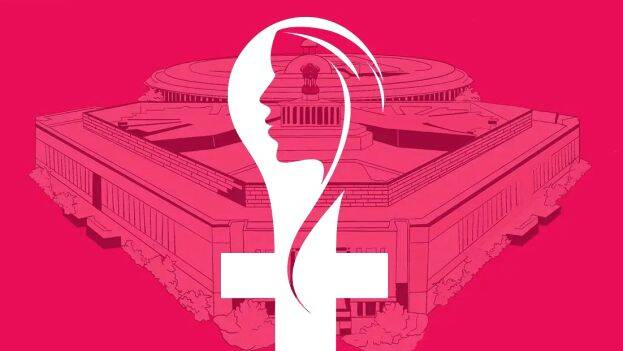

NEW DELHI: Modi government made history by introducing the Women's Reservation Bill as the first action on the first day of the new Parliament building. The Lok Sabha may pass it today itself and send it to the Rajya Sabha. After that, the law will come into force after getting the approval of half of the legislatures of the country.
The law will come into effect only after the 2026 constituency delimitation on the basis of population. Hence, women will get 33 percent of seat reservations only by the 2029 general elections.
Prime Minister Narendra Modi informed the Lok Sabha about the presentation of the bill, saying 'God chose me for this'. Later, Law Minister Arjun Ram Meghwal presented the 'Nari Shakti Vandan Adhiniyam'. 128th constitutional amendment is being brought.
Meanwhile, Congress raised its voice in Parliament yesterday, claiming the paternity of the bill. Congress leader Adhir Ranjan Chaudhary argued that the bill was introduced by the Manmohan government in 2008 and passed in the Rajya Sabha in 2010. Home Minister Amit Shah replied that it was lapsed because it was not passed before the term of the Lok Sabha.
The Lok Sabha seats may increase from 543 to 848 when the constituency delimitation is completed as per the new census in 2026. The number of seats will be increased in North Indian states with high populations. However, seats are likely to decrease in southern states where the population has been reduced through better family planning. Meanwhile, there may be no change in the 20 seats from Kerala.
Protest, voice vote
The introduction of the bill without inclusion in the agenda led to opposition protests in the House. The supplementary agenda came out after the Prime Minister's speech. The bill was introduced with a voice vote during the protest. Discussion will be held today.
Historical assignment. Greater participation of women is essential in policy making- Prime Minister Narendra Modi.
Current Lok Sabha: 82 women out of 543
If amended: 181 women out of 543
(Women's representation will increase as the number of seats increases in constituency delimitation)
Constitutional Amendments
330A-1 and 332A-1
There will be reservations for women in Lok Sabha and Legislative Assemblies
330 A-2, 332 A-2
One-third reservation of SC and ST reserved seats in the Lok Sabha and Legislative Assemblies for women
330 A-3, 332 A-3
Reservation for women in one-third of the total seats to be filled through elections, including those reserved for Scheduled Caste and Scheduled Tribe women in the Lok Sabha and Legislative Assemblies
334 A-1
Women's reservation will be implemented only after constituency delimitation as per the next census
334 A-2
Although the Act has a 15-year term, Parliament can decide
334 A-3
Rotation in reserved seats for women after constituency delimitation
Amendment of section 229
The reservation also applies to the Delhi Assembly